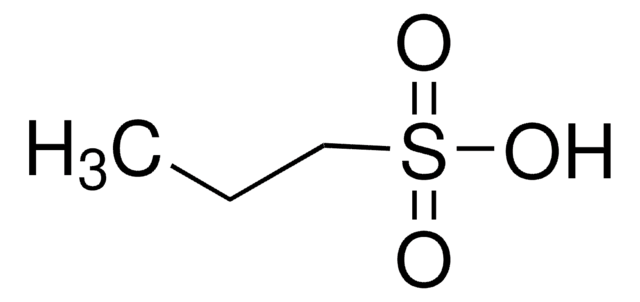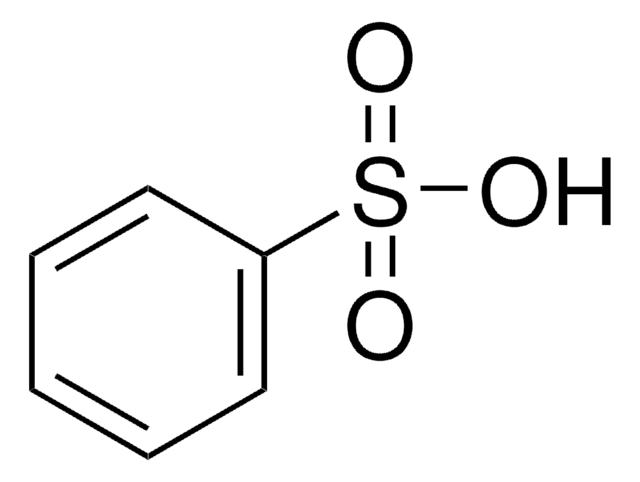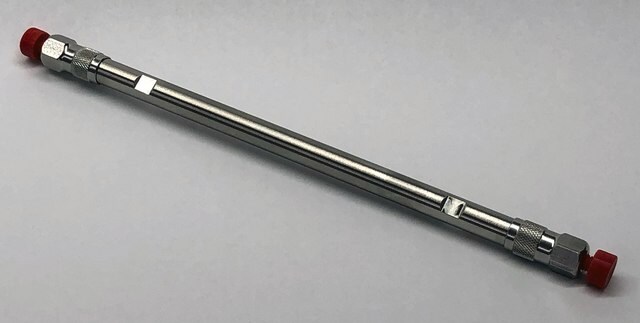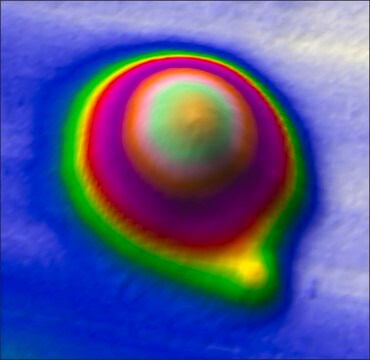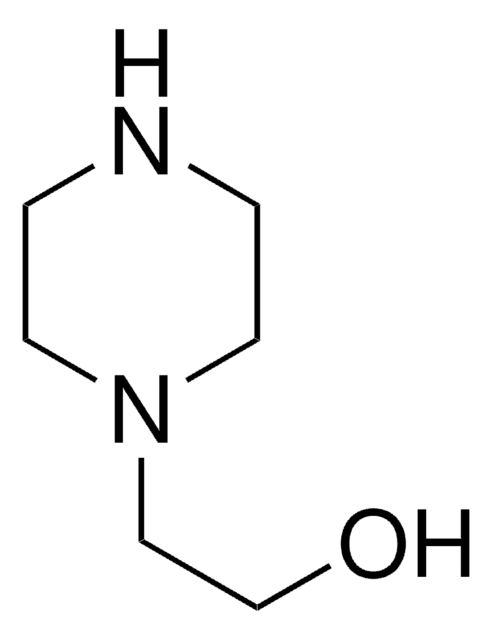186260
Ethanesulfonic acid
95%
Synonym(s):
1-Ethanesulfonic acid, Ethylsulfonic acid
About This Item
Recommended Products
Quality Level
Assay
95%
refractive index
n20/D 1.434 (lit.)
bp
123 °C/0.01 mmHg (lit.)
mp
−17 °C (lit.)
solubility
water: soluble
density
1.35 g/mL at 25 °C (lit.)
functional group
sulfonic acid
SMILES string
O=S(O)(CC)=O
InChI
1S/C2H6O3S/c1-2-6(3,4)5/h2H2,1H3,(H,3,4,5)
InChI key
CCIVGXIOQKPBKL-UHFFFAOYSA-N
Looking for similar products? Visit Product Comparison Guide
General description
Ethanesulfonic acid is a sulfonic acid, commonly used as a catalyst for alkylation and polymerization reactions.
Application
Signal Word
Danger
Hazard Statements
Precautionary Statements
Hazard Classifications
Acute Tox. 4 Oral - Eye Dam. 1 - Skin Corr. 1B
Storage Class Code
8A - Combustible corrosive hazardous materials
WGK
WGK 3
Flash Point(F)
235.4 °F - closed cup
Flash Point(C)
113 °C - closed cup
Personal Protective Equipment
Choose from one of the most recent versions:
Already Own This Product?
Find documentation for the products that you have recently purchased in the Document Library.
Customers Also Viewed
Our team of scientists has experience in all areas of research including Life Science, Material Science, Chemical Synthesis, Chromatography, Analytical and many others.
Contact Technical Service
